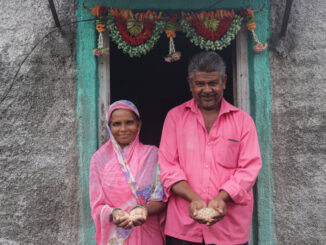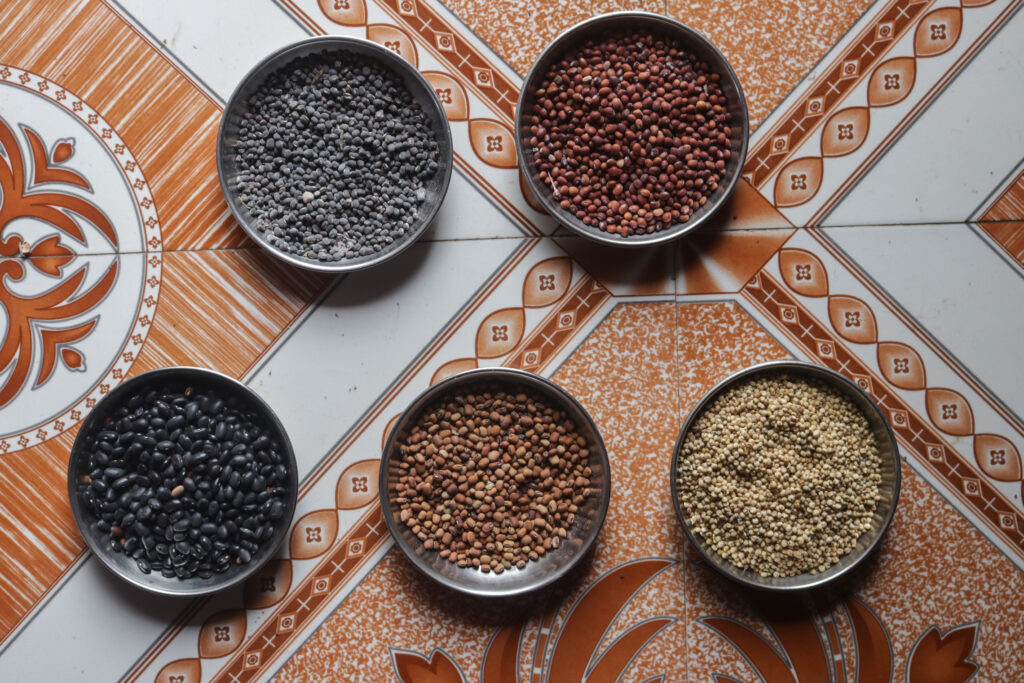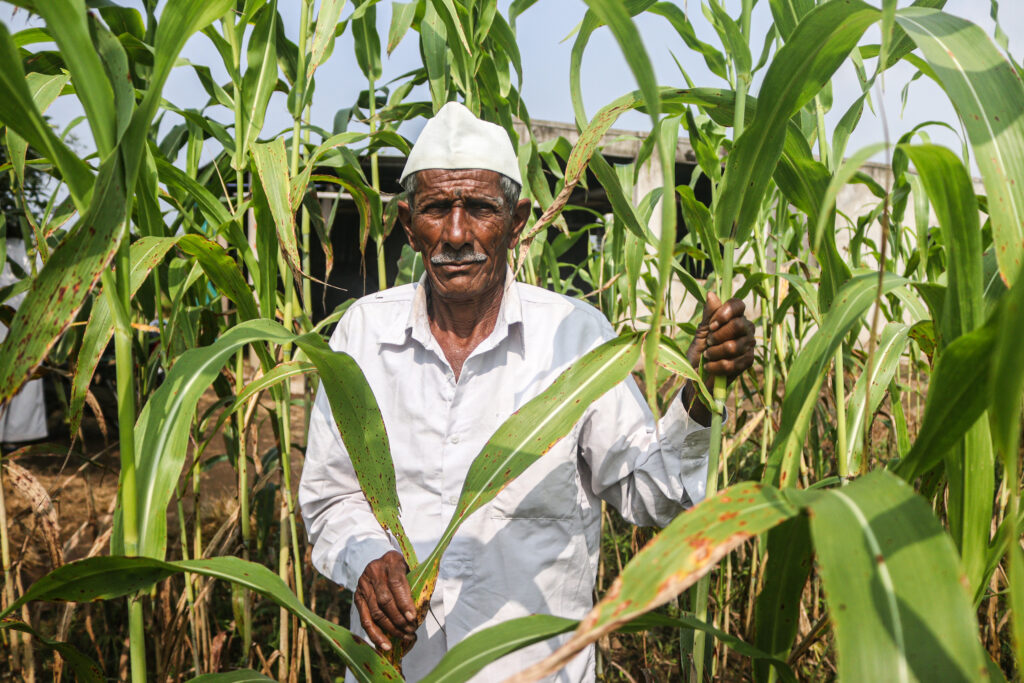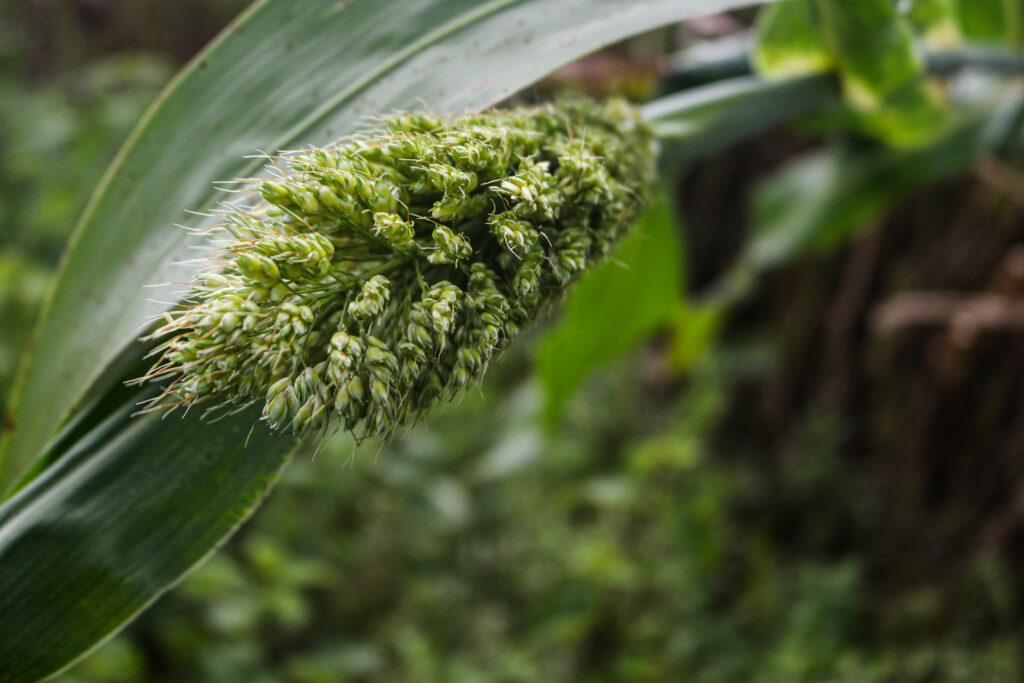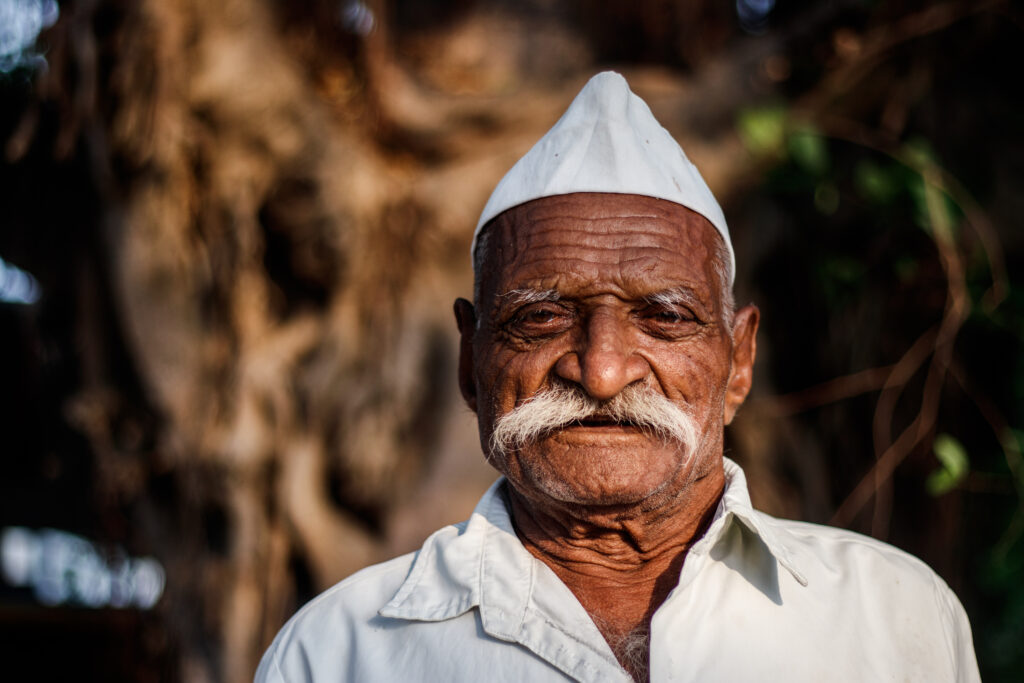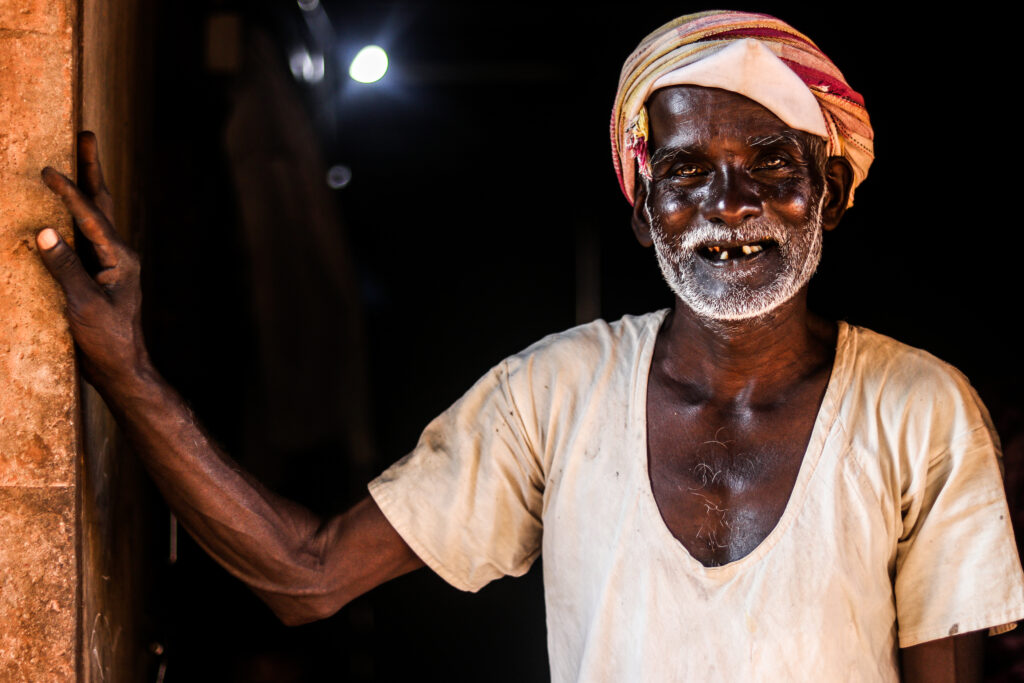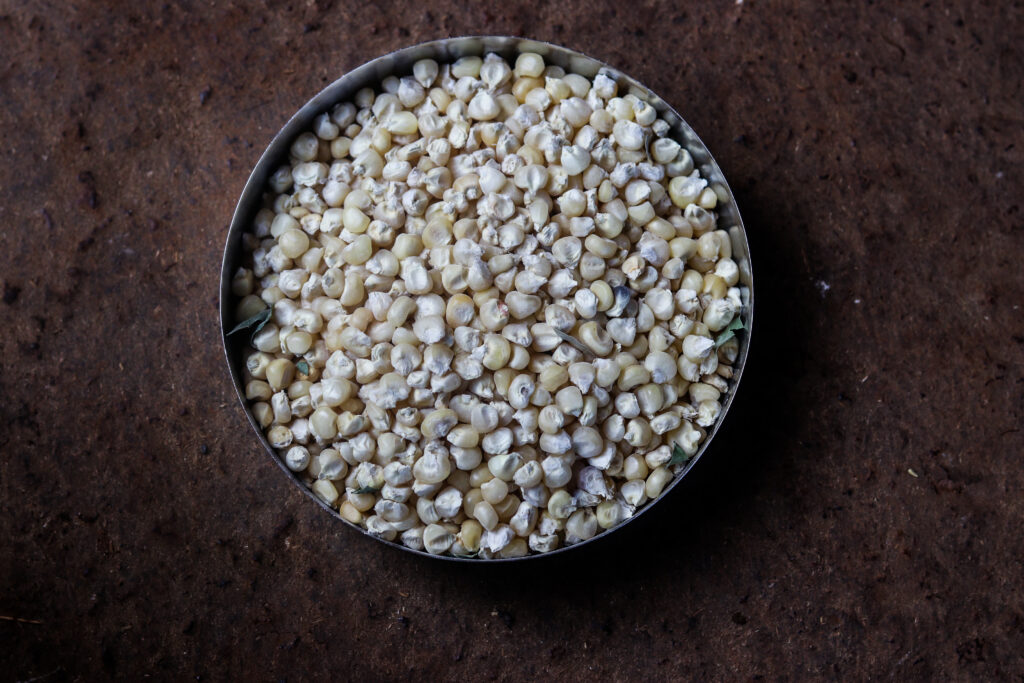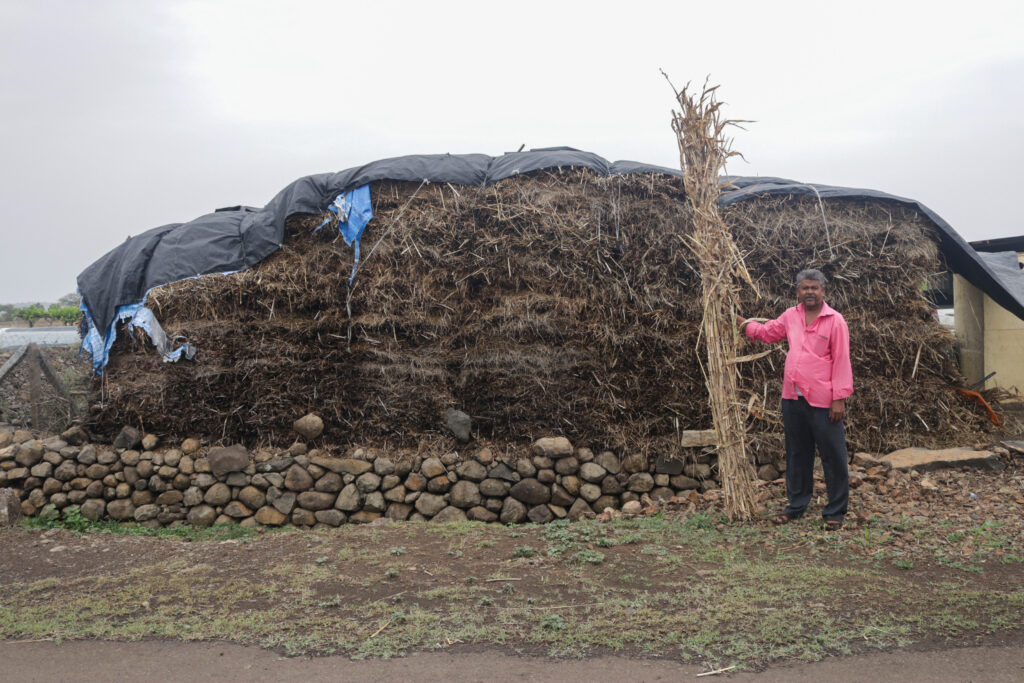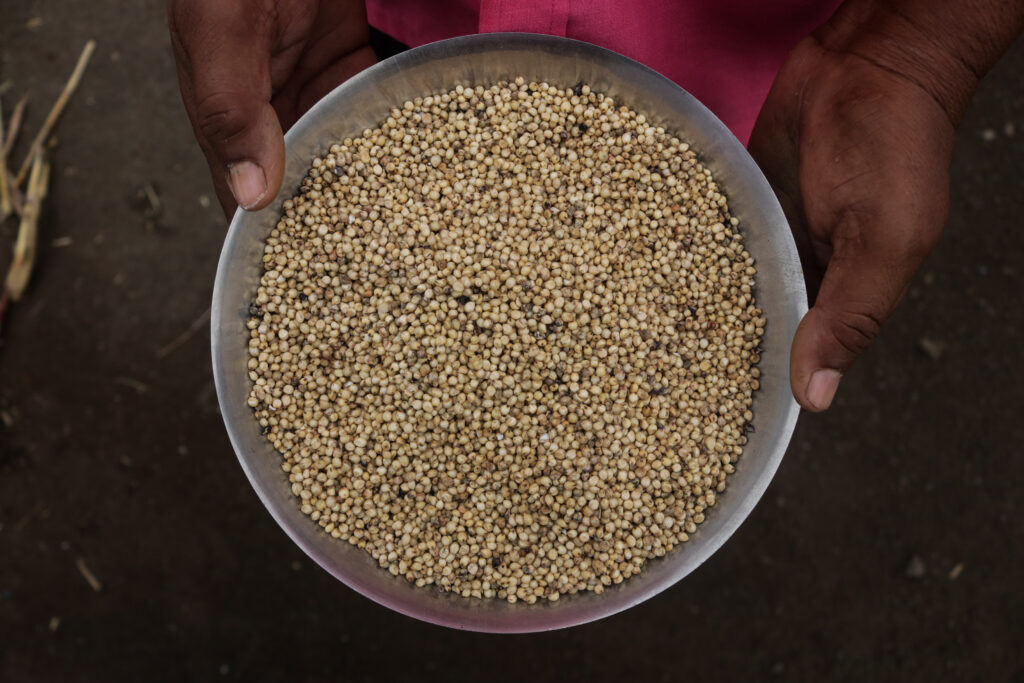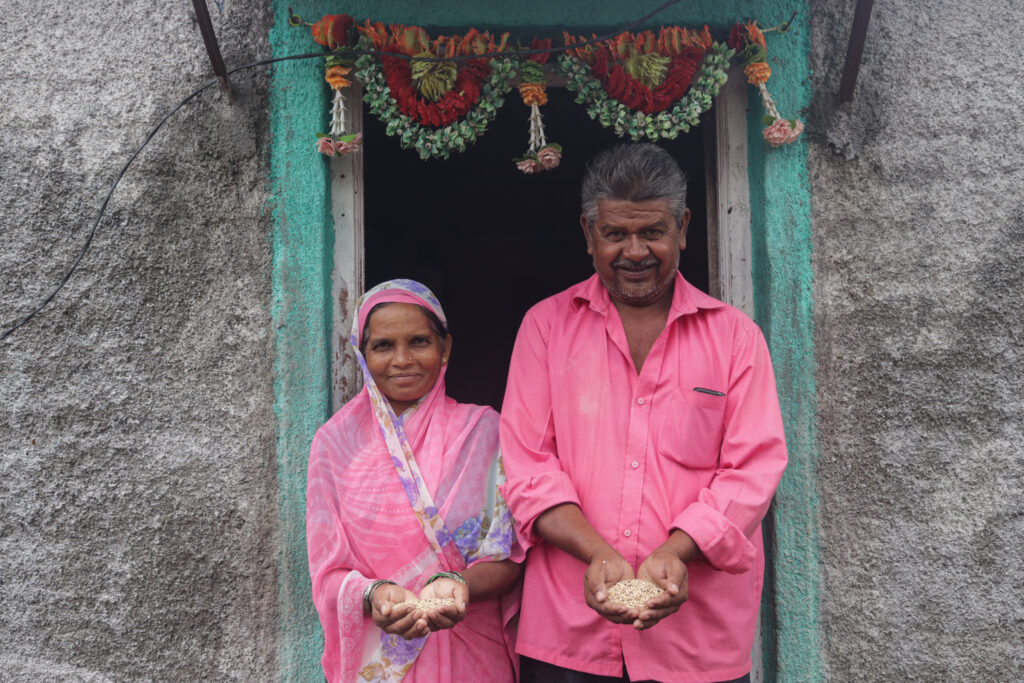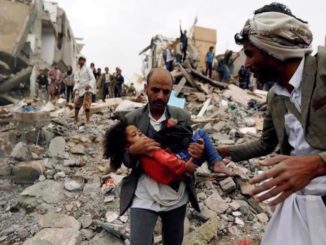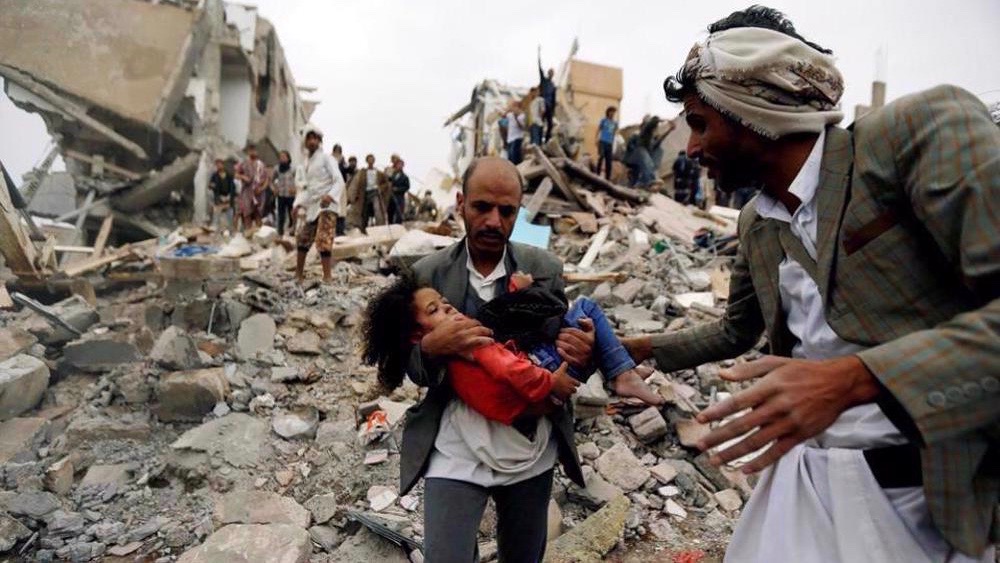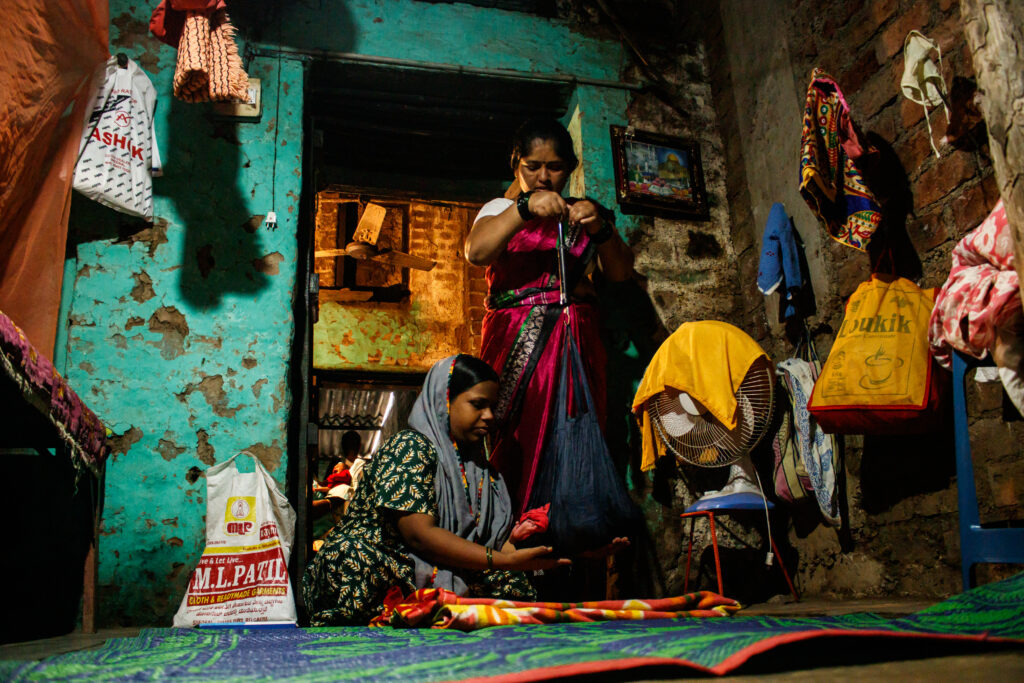
Hasina Hajukhan never imagined that returning to her maternal house would turn into a near-death experience. In April, the 28-year-old was seven months pregnant, and her medical parameters were normal. “I was taking extra care to ensure no complications during childbirth,” she told Toward Freedom.
As is customary in many parts of India, pregnant women return to their parents’ homes to give birth. When Hajukhan first reached her mother’s house in Ganeshwadi village of the western Indian state of Maharashtra, she felt nauseated. “It was April’s final week, and I couldn’t even breathe properly,” she recounted. A heat wave had taken hold. “The climate was the stark opposite of what it was in my husband’s village.” In Ganeshwadi, things kept getting complicated with the rising heat. “Every day, I was breathless and would feel dizzy.”
Using a desk fan at the highest speed didn’t help, as it just circulated more hot air. An air conditioning system was something her family could not afford. The tin sheet roof would get extremely hot. During this crucial time, Hajukhan needed rest. However, she spent most of her day stepping out to gasp for cold air. In May’s final week, things got worse. “I felt as if I was going to die,” she recalled, teary-eyed.
Immediately, her mother dialed Ranjana Gavade, an accredited social health activist (ASHA worker), part of a community of 1 million women healthcare workers appointed for every 1,000 people in India’s villages. ASHAs are responsible for more than 70 healthcare tasks, with a particular focus on maternal and child health.
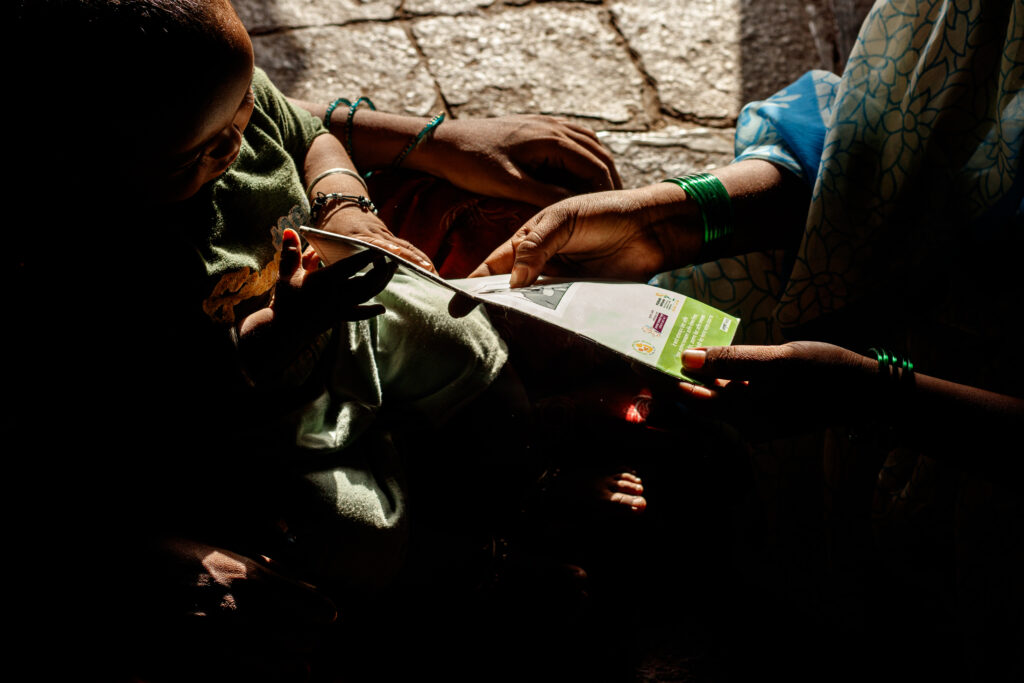
“I was worried looking at her rapidly deteriorating health and informed my colleagues.” Upon their instructions, Gavade called a government ambulance and swiftly took her to the district hospital, 33 kilometers (20.5 miles) away. Hajukhan gave birth to underweight twins. Her troubles still hadn’t ended when she was discharged after three days. For a month since then, Hajukhan has been trying to ensure her twins gain weight, but all efforts have failed. As a result, they weren’t administered the necessary Bacillus Calmette–Guérin (BCG vaccine used against tuberculosis), Hepatitis B, and Polio vaccines.
The Kolhapur district, where Hajukhan lives, has been reporting recurring floods, heat waves, incessant rainfall, and hailstorms triggered by climate change. She said everything would have been normal had she not returned to her parents’ home to give birth in the heat waves. “My children wouldn’t have had to live such a dangerous life,” she said.
Like in the village of Ganeshwadi, climate change impacts have been delaying children’s immunization schedules throughout India, making them vulnerable to diseases. Research has found that if a child belonged to a district highly vulnerable to climate change, the odds of stunting rose by 32 percent, low weight by 45 percent, anemia by 63 percent and acute malnutrition by 42 percent. An analysis by global nonprofit Save the Children found that, globally, 774 million children are living in poverty and at a high risk of climate-related disasters. Weather disasters ranging from floods to droughts prevent children from obtaining nourishment, causing low weight, and these disasters put a break on children receiving vaccinations on time. Their weakened immune systems, as a result of a lack of proper nourishment in crisis times, make them vulnerable to other diseases. Being sick can halt the necessary immunizations, and these delays have led to a rise in epidemics and diseases.
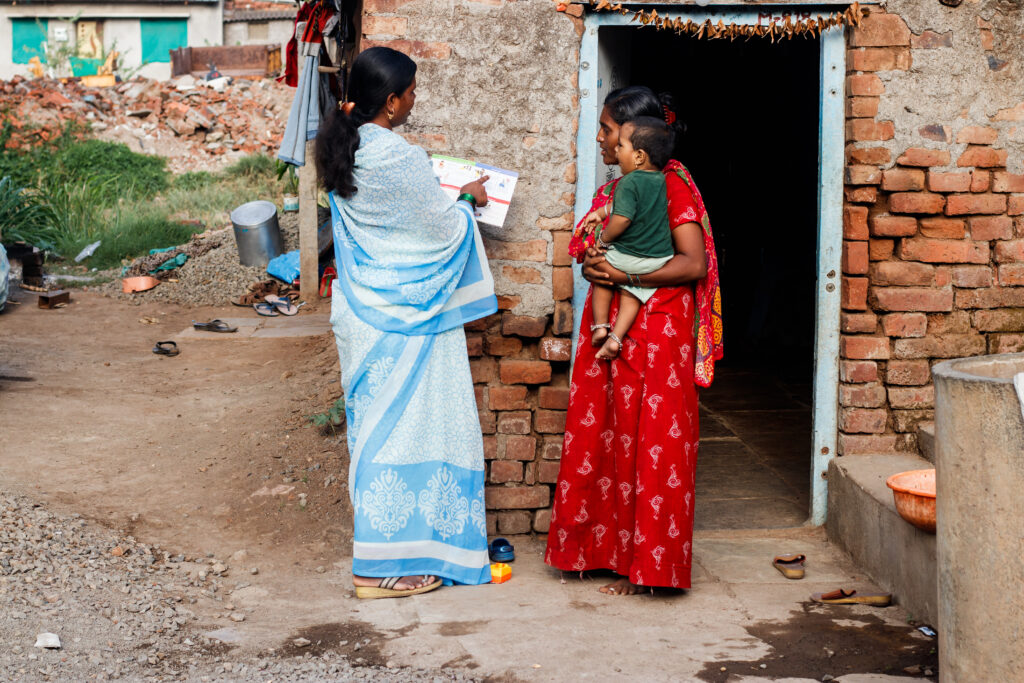
How Floods Impact Universal Immunization
Snehal Kamble, 24, a resident of Maharashtra’s flood-prone Arjunwad village, remembers the year 2019 in meticulous detail. “A day before the floods, I was preparing to go to my parent’s house.” Five months pregnant, she was looking for iron folic acid tablets. “Instead, all of us went to a flood relief camp,” she recounted. From there, she moved to another relief camp within a few days, as the water rose further. “During this time, I was worried about my house and belongings,” she said. She fell sick and was away from home for 15 days. “Those were the most difficult days of my life,” she shared. Then in January 2020, she gave birth to a boy named Sangarsh, who has often fallen sick. “When I went to my maternal house, he just couldn’t bear the heat there,” she said. The dehydration and spells of fever he experienced affected his immunization schedule. “His Pentavalent vaccine was delayed by several months because of health ailments,” said ASHA worker Shubhangi Kamble (no relation to Snehal), who has been monitoring this child since birth.
Further, his Measles-Rubella vaccine and Vitamin A dose were also delayed, making him vulnerable to diseases. “Vaccines need to be administered on time,” said Sachin Kamble, a nursing officer at the district women’s hospital in Maharashtra’s Osmanabad district. “Otherwise, it affects a child’s immunity, making them more vulnerable to diseases.”
He pointed out how the lack of vaccinations led to 2,692 cases in 2022 in Maharashtra, which reported the highest measles count in India. That was an eight-fold increase from the previous year. During this time, India reported 12,773 cases. India’s National Family Health Survey (NFHS) said only 31.9 percent of children ages 24 months to 35 months had received a second dose of measles-containing vaccine in 2019-21.
Another healthcare worker, Kavita Magdum, from flood-affected Ganeshwadi village, said that children in her surveying area never fell ill so frequently. She started noticing such stark changes only in the past five years. Upon inspecting this, she found, “Stress caused by the changing climate is leading to this.” For instance, Magdum sees that many children aren’t drinking breast milk, which has impacted their medical parameters. These drastic changes reflect in Indian government statistics, as well. During 2015-16, 58.6 percent of children ages 6 months to 59 months (just under 5 years old) were anemic in India. By 2019-20, this number rose to 67.1 percent. In addition, 32 percent of children nationally remain underweight.
After a year-and-a-half, Snehal’s son started getting better, thanks to Shubhangi’s consistent visits, when she monitored every parameter and ensured the best possible treatment by working hours beyond her duty. “Once the vaccination schedule started falling in place, his health, too, began improving,” Shubhangi shared.
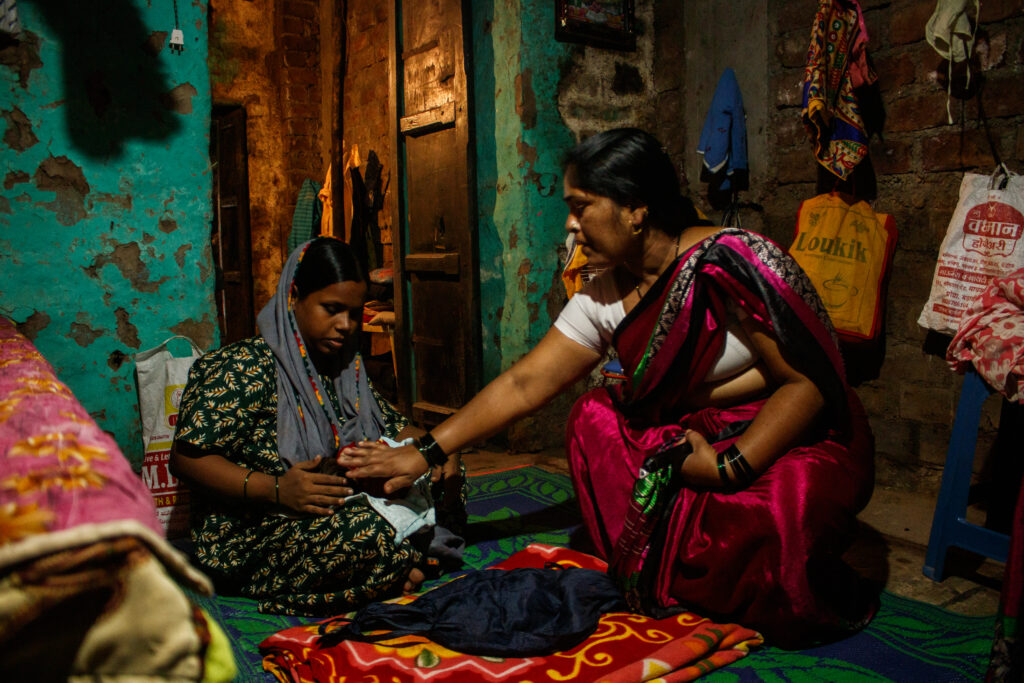
Untimely Administration of Vaccines
While climate change is making it difficult for these healthcare workers to complete universal immunization, another challenge is the untimely vaccine administration.
“There are many instances, where vaccines in several villages are just not available,” said Netradipa Patil, leader of more than 3,000 ASHA workers and co-founder of Deep-Maya Foundation, a non-profit that works for women and children. “During such times, it becomes extremely challenging for us healthcare workers to manage everyone.”
Patil has observed that the workload has increased tremendously for all the ASHA workers because of the delay in vaccination. This is because ASHA workers are responsible for immunization, and in case of any discrepancy or error, they are held accountable. Research published in 2016 concluded, “Lack of timely administration of key childhood vaccines, especially DPT3 (the three doses of the Diphtheria, Tetanus and Pertussis vaccine) and MCV (measles-containing vaccine), remains a major challenge in India and likely contributes to the significant burden of vaccine-preventable disease-related morbidity and mortality in children.” Another paper published in 2019 inferred, “The proportion of children with delayed vaccination is high in India.”
In 2021, the World Health Organization found that 25 million children around the world under the age of 1 didn’t receive vaccines, a figure not seen since 2009. “Many children never get the Vitamin A doses on time. These doses are just not available when required,” Patil said, suggesting the Indian government should consult local healthcare workers to arrange vaccination. “We need to reach more and more people, and, currently, looking at the changing climate, we aren’t prepared to do this,” she shared. Patil made simple suggestions like identifying vulnerable children and their locality and monitoring them from the earlier stages, even before the disaster strikes. “Just by proper identification, we can save so many children,” she said.
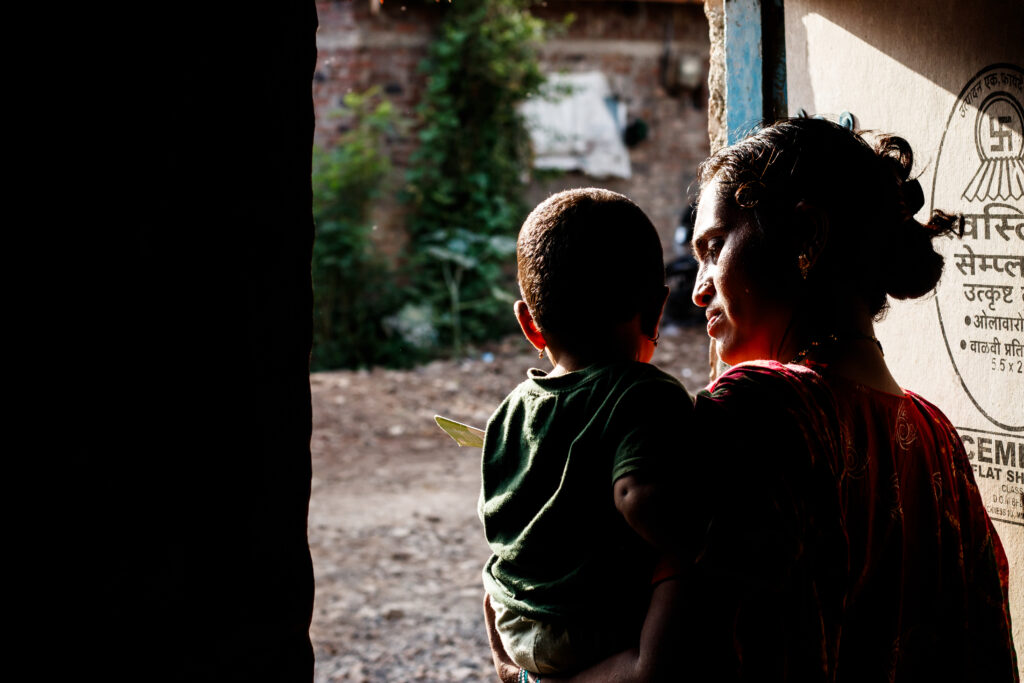
Rising Undernourishment
Fed up with feeding medications and tonics that didn’t seem to help increase his weight and prevent him from continually falling ill due to the changing weather conditions, Rashi Patil, 23, quit taking her son to the doctor every month after 18 months. “My son just wouldn’t eat anything,” Patil said.
Moreover, the changes in local climatic patterns affected her son’s health, and he often fell sick. Last year, he was hospitalized for a week as his platelets fell and a fever intensified. What followed next were recurring illnesses that delayed his immunization schedule. Because of the fever in March, he wasn’t administered the Pentavalent 1 vaccine (it protects from five life-threatening diseases: Diphtheria, Pertussis, Tetanus, Hepatitis B and Hib [Haemophilus Influenzae Type b]). Her son soon became weak and began recovering only after the vaccine’s administration. All this while, her son struggled with good eating habits. After several trials and errors, Rashi and her husband, Rajkumar, discovered the climate affected their son’s health and eating habits.
“Now, their son makes it a point to eat only outside the house, where he gets some cold air,” says Rashi. “Contrastingly, this was never the case with my elder daughter.”
Toward Freedom reached out to Ganeshwadi’s community health officer, Dr. Prajakta Gurav, regarding what steps her team was taking to deal with delayed immunization. Gurav hasn’t replied as of press time.
The impact of poor diets is more obvious at the national level. For instance, just 11.3 percent of children between the ages of 6 months and 23 months receive an adequate diet. Plus, in 2022, India ranked 107 out of 121 countries on the global hunger index. These numbers further reveal how climate change is exacerbating the existing faultlines.
The problem is not restricted to India. Of the countries at severe risk of being adversely affected by climate change, the report by Save the Children says, “Burundi has the highest rate of stunted children (54 percent), followed by Niger (47 percent), Yemen (46 percent), Papua New Guinea (43 percent), Mozambique (42 percent) and Madagascar (42 percent).”
Research published in PLOS Medicine found that in 22 sub-saharan African countries, drought led to lower chances of completion of BCG (Bacillus Calmette-Guérin), Polio and DPT (diphtheria, tetanus, and pertussis) vaccines. “We took vaccines to the last mile. Now, climate change is eroding progress.”
For Komal Kamble, 30, vaccinating her 2-year-old daughter remains challenging. Her remote mountainous village of Kerle, in Maharashtra’s Kolhapur district, remains inaccessible most of the year.
For the village population of less than 1,100 people, the nearest healthcare facility is 15 kilometers away. Last year, within a week of October rains, the road that connects her village to the nearest hospital was completely under floodwater.
Komal’s daughter couldn’t get proper medical care for two days, worsening her health. Her chest was full of cough, and the fever rose, making things difficult for the agrarian Kamble family. This wasn’t restricted to heavy rainfall, though. Since her birth in 2021, Komal has taken her daughter to a private doctor at least 20 times, spending over Rs 15,000 ($182). Last year, she was feverish and wasn’t given the crucial Japanese encephalitis vaccine, a Vitamin A dose and the Measles-Rubella vaccine. This made her vulnerable to more diseases, challenging the Kamble family.
Healthcare worker Shubhangi Kamble from Arjunwad says that instances of children missing their vaccination are rising rapidly. When she went to find out why this was happening in her village, Arjunwad, she saw that children fell sick during floods and heat waves. “This was the time that coincided with their vaccination schedule, and so many couldn’t get the vaccines,” she shared.
However, a delay in vaccination has caused more problems than she had anticipated.
“Almost every day, at least one parent dials me asking where they should get their children hospitalized,” she said.
Now, every rainfall brings a health issue for Komal’s daughter. “I am tired of going to the healthcare center to hear that my daughter is underweight or sick and can’t be given the vaccine,” Komal said, with frustration in her voice.
Meanwhile, with every climate disaster, it will become increasingly difficult for many families to complete the immunization in time. “I’ve been vaccinating children for over a decade, but things never got this difficult. We took vaccines to the last mile. Now, climate change is eroding progress,” said healthcare worker Kavita Magdum.
Sanket Jain is an independent journalist based in the Kolhapur district of the western Indian state of Maharashtra. He was a 2019 People’s Archive of Rural India fellow, for which he documented vanishing art forms in the Indian countryside. He has written for Baffler, Progressive Magazine, Counterpunch, Byline Times, The National, Popula, Media Co-op, Indian Express and several other publications.

